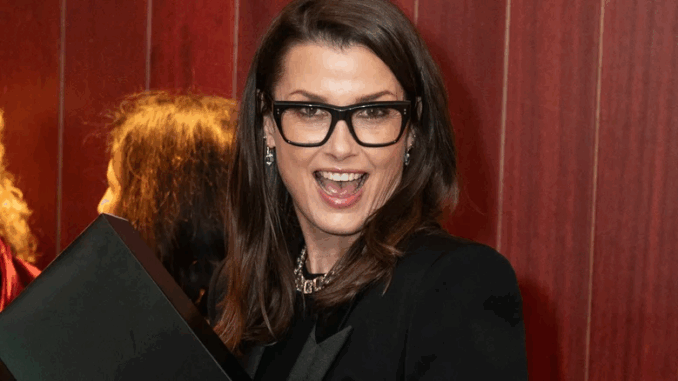
For 14 years, the enduring success of Blue Bloods was not measured by its crime-of-the-week plots, but by the quiet power of its family drama. Every Friday night, millions of viewers tuned in not just to see how the Reagans would solve a case, but to witness them come together around the dinner table. It was a space for tough conversations, moral debates, and unwavering loyalty. This formula was what made Blue Bloods a cultural phenomenon.
So when CBS announced that Donnie Wahlberg‘s character, Danny Reagan, would be moving to Boston to star in a new spin-off, Boston Blue, the promise of a direct connection to the original series was a major selling point. The confirmation that Bridget Moynahan would appear in the premiere as Erin Reagan-Boyle was supposed to be the perfect bridge from the old world to the new. But in its execution, the reunion failed to capture the essence of what made the original show so beloved, proving that you can’t simply take two parts of a machine and expect them to function the same way.
The Missing Table: Why the Family Dinner Matters
The most glaring omission in the Boston Blue premiere was, without a doubt, the absence of the Reagan family dinner. The meeting between Danny and Erin was a professional one, a business transaction over a case that required their collaboration. There was no shared meal, no generational conflict, and no moral debate that was as much about family as it was about justice.
The family dinner was the show’s emotional and narrative anchor. It was the only place where the different parts of the justice system—the cop, the assistant district attorney, the police commissioner, and the sergeant—could come together and air their differences. It was where the family’s shared values of loyalty and integrity were tested against the realities of their jobs. The power of the show lay in the subtext of these conversations, in the knowing glances, and in the unspoken support they offered one another. By framing the reunion around a single case, Boston Blue stripped away all that complex, earned emotional weight. It reduced a 14-year-long relationship to a simple professional courtesy.
The Missing Patriarch: The Ghost of Frank Reagan
The genius of Blue Bloods was in its collective identity, and at the center of that identity was Tom Selleck as Commissioner Frank Reagan. He was the show’s moral compass, its guiding hand, and the emotional glue that held the family together. The debates between Danny’s tough-guy approach and Erin’s by-the-book legalism were only powerful because they were filtered through Frank’s wisdom and leadership.
In Boston Blue, with Frank’s guiding hand absent, the reunion between Danny and Erin felt hollow. The tension and support that defined their relationship in the original series felt out of place. Without a father to mediate their disagreements and a family to back them up, their dynamic was just two professionals debating a case. It’s a compelling procedural, perhaps, but it’s not Blue Bloods. The show is now forced to stand on its own, and it quickly became clear that the absence of its patriarch is a creative hole that cannot be filled by a simple guest appearance.
Two Pieces, Not the Whole Puzzle: The Lost Inter-departmental Dynamic
The true genius of Blue Bloods was its ability to show how a single case could ripple through a family and affect every facet of the justice system. The show was a puzzle with many pieces—the on-the-ground police work of Danny and Jamie, the legal world of Erin, and the political and moral decisions of Frank. The real drama came from the way these different worlds collided.
In Boston Blue, we see two pieces of that puzzle, but we don’t get to see how they fit into the bigger picture. We see Danny in Boston and Erin on a business trip, but we don’t get to see how their actions are affecting the Commissioner, the beat cops, or the rest of the family. The reunion, therefore, feels small and incomplete. It’s a great scene for fans who miss the characters, but it fails to capture the intricate, multi-layered storytelling that made the original show so compelling.
The Verdict: The Cost of Nostalgia
The reunion between Danny and Erin in the Boston Blue premiere was a nod to the past, a way of saying, “We haven’t forgotten the Reagans.” But in its effort to capitalize on nostalgia, the show inadvertently highlighted its biggest flaw. It proved that without the full family dynamic, the rich ideological debates, and the powerful presence of Frank Reagan, the show is just another police procedural. It lacks the unique heart and soul that made Blue Bloods a 14-year success story.
Moving forward, Boston Blue has a difficult road ahead. It must find its own identity without relying on a nostalgic and ultimately flawed imitation of the original show’s success. It must find its own emotional core, its own family dynamic, and its own way of telling stories that are both compelling and meaningful. The show’s premiere was a stark reminder that the Reagan family was more than a collection of individuals; they were a collective force, and their power was in their unity. Without that unity, the show risks becoming just another cop drama, a fate that would be the biggest creative failure of all.